Citation: Yadi K, Maritan L, “Innovating in the Viscosity Design Space for Handheld Combination Products: a New 2.25 mL Autoinjector Platform”. ONdrugDelivery, Issue 117 (Mar 2021), pp 40–44.
Karima Yadi and Lionel Maritan discuss BD’s response to the need for an autoinjector platform that reconciles the demands of biologics with safety, reliability and ease of use during self-injection: the Intevia™ 2.25 mL disposable autoinjector.
“Biological drugs are often characterised by large molecules requiring administration in large injection volumes and/or high concentrations. These proteins require parenteral administration via IV or SC injection, due to their low bioavailability via other routes. This can present a challenge for existing SC autoinjector technologies that have been limited to lower viscosities and volumes.”
Multi-disciplinary teams at BD set out to develop an autoinjector platform that builds on past successes, while meeting the requirements of the highly viscous, high volume1 biologics that are upcoming in the chronic disease space. The result is an autoinjector platform that delivers an enhanced experience for patients,2 extends the design space beyond traditional subcutaneous (SC) delivery for biologics and can lower development risks for biopharmaceutical partners.
Chronic diseases represent a major burden to the healthcare system, accounting for approximately 77% of the total disease burden and 86% of all deaths in Europe.3 Today, innovative drug therapies, such as biologics, are contributing towards an improvement in the quality of life for chronic disease sufferers. Simultaneously, innovations in the drug delivery device space are making it possible for chronic disease sufferers to manage their drug therapies from home.4 Subsequently, many innovations in this area seek to improve the patient self-injection experience by addressing issues, such as injection frequency, pain perception, needle phobia, needlestick injuries, accidental intramuscular (IM) injection risk and dose accuracy and consistency. Beyond greater comfort and convenience for patients, moving the centre of care from the clinic to the home, when possible, contributes to better management of healthcare costs.1
THE NEXT STEP IN BIOLOGICS
A high success rate has contributed to making biologics one of the fastest growing segments within the pharmaceutical industry.5 In 2018, the biologics market was valued at US$251.5 billion (£183.8 billion) and in 2019 was predicted to grow at a compound annual growth rate of 11.9%, reaching $625.6 billion (£457.1 billion) by 2026.6 Within the biotherapeutic space, the market for monoclonal antibody-based drugs (mAbs) has undergone significant growth of its own, thanks to mAbs’ high target specificity, good therapeutic outcomes and limited side effects.7 As of December 2019, 79 therapeutic mAbs had been approved by the US FDA.7
Biological drugs are often characterised by large molecules requiring administration in large injection volumes and/or high concentrations.* These proteins require parenteral administration via intravenous (IV) or SC injection, due to their low bioavailability via other routes.8 This can present a challenge for existing SC autoinjector technologies that have been limited to lower viscosities and volumes.
“The BD Intevia™ 2.25 mL disposable autoinjector is a robust and integrated two-step, push-on-skin device that serves a broad design space, providing pharmaceutical companies with additional degrees of freedom and flexibility in drug formulation.”
There is a need for a delivery solution in the SC self-injection space capable of reconciling the demands of biologics with safety, reliability and ease of use during self-injection. There are many important incentives for meeting this need, including providing patients with longer intervals between injections, reducing injection-associated pain and discomfort,1 increasing therapeutic adherence, limiting overall costs and creating greater freedom from IV parenteral injections.9
ENLARGING THE AUTOINJECTOR DESIGN SPACE
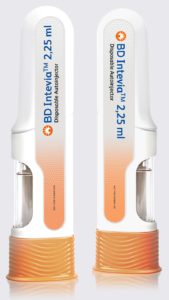
Figure 1: Intevia™ 2.25 mL disposable autoinjector.
With the launch of the BD Intevia™ disposable autoinjector platform, BD offers a range of devices combining an autoinjector and a prefillable syringe in one integrated system, specifically designed for high-viscosity, high-volume biologics. The BD Intevia™ 2.25 mL disposable autoinjector** expands the Intevia™ range beyond the already-launched BD Intevia™ 1 mL disposable autoinjector (Figure 1). Created using BD’s quality-by-design approach, the BD Intevia™ 2.25 mL disposable autoinjector is a robust and integrated two-step, push-on-skin device that serves a broad design space, providing pharmaceutical companies with additional degrees of freedom and flexibility in drug formulation. The BD Intevia™ 2.25 mL disposable autoinjector delivers drugs with viscosities up to 40 cP safely and effectively.10,11 Pharmaceutical companies can adapt the BD Intevia™ 2.25 mL disposable autoinjector to deliver a range of drug volumes and viscosities without any need for customisation of the system or of its components.10
INTEGRATING BD NEOPAK™ XTRAFLOW™ 2.25 ML GLASS PREFILLABLE SYRINGES
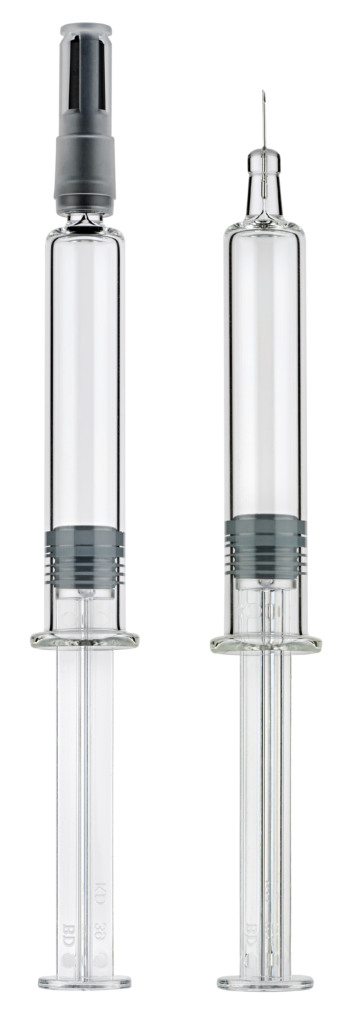
Figure 2: BD Neopak™ glass PFS.
The BD Intevia™ 2.25 mL disposable autoinjector integrates the BD Neopak™ XtraFlow™ 2.25 mL glass prefillable syringe, featuring innovative 8 mm needles with Thin Wall (TW) cannula technology (Figure 2). BD Neopak™ prefillable syringes are characterised by breakage resistance, design quality, autoinjector compatibility and dimensional precision for dose accuracy.10 By directly addressing many of the risk factors that can cause development delays,12,13 BD Neopak™ glass prefillable syringes contribute to reduced time to market and optimised commercialisation of biopharmaceuticals.13
The integration of the BD Neopak™ XtraFlow™ glass prefillable syringe simultaneously supports crucial objectives of the BD Intevia™ disposable autoinjector platform – simpler adaptation to drug volumes and viscosities and reliable combination product performance. This may contribute to cost savings for biopharmaceutical partners,13 while also contributing to comfort, safety and convenience for patients.1,11
EXTENSIVE PIPELINE SUPPORT WITHOUT CUSTOMISATION
The Neopak™ XtraFlow™ glass prefillable syringe simplifies the burden of device integration faced by pharmaceutical companies. With its robust integration into the BD Intevia™ disposable autoinjector platform, the BD Neopak™ XtraFlow™ glass prefillable syringe helps eliminate the risks associated with the integration of components from diverse manufacturers,11 as well as the risks associated with the customisation of the secondary device. With BD Intevia™ disposable autoinjectors, one device configuration addresses a broad range of viscosities and volumes without the need to customise system and subsystem components.
This high degree of flexibility is made possible by accommodating the demands of different viscosities and volumes solely through the parameters of the needle integrated into the Neopak™ XtraFlow™ glass prefillable syringe. By using a shorter needle and increasing its inner diameter without increasing the external diameter (by reducing the thickness of the needle wall), injection force is reduced by up to 46% compared with a commonly used 12.73 mm needle.14 This is achieved without compromising needle robustness15 or increasing pain perception.16
To manage a range of viscosities and injection volumes, Neopak™ XtraFlow™ 2.25 mL glass prefillable syringes are available with 27G UTW, 27G Special-Thin Wall and 29G Thin Wall 8 mm needles.
Thanks to BD Intevia™ 2.25 mL disposable autoinjector and BD Neopak™ XtraFlow™ 2 mL glass prefillable syringe system, a single autoinjector is equipped to handle biologic formulations with viscosities ranging from aqueous to 40 cP and fill volumes up to 2.25 mL.
PUTTING PATIENTS FIRST
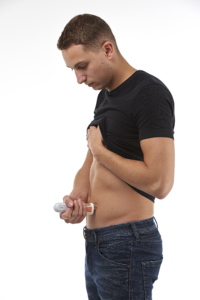
Figure 3: BD Patient administration of the Intevia™ 2.25 mL disposable
autoinjector.
The BD Intevia™ disposable autoinjector platform supports pharmaceutical companies that wish to take the lead in patient comfort1 in the injection of biologics at dose volumes of up to 2 mL via SC delivery. The platform is the direct of result BD’s patient-centric design approach and commitment to developing drug delivery solutions tailored to home care, with the aim to improve patient adherence to chronic disease treatments. This patient-centric approach is reflected throughout BD Intevia™ disposable autoinjector design factors. The BD Neopak™ XtraFlow™ 2 mL glass prefillable syringe 8 mm needle technology usability was supported by two human factors studies. They address several unmet needs including a reduction in injection or needle-related anxiety, pain perception and reduced risk of accidental IM injection. It was also calculated that the reduction in the needle length increases the chances of targeting the subcutaneous space by two to six times, thus ensuring an optimal efficacy of injectable therapies while avoiding potential adverse effects for the patients.11
The BD Intevia™ 2.25 mL disposable autoinjector’s patient-friendly design makes it easy to hold and manipulate,11 enabling a simple, two-step, push-on-skin injection by the patient (Figure 3).10 The device promotes patient confidence through feedback indicators that visually show patients when the correct dose has been delivered, both and with an audible click.11 Robust system design improves patient safety by protecting the needle at all times, from the start to the end of the injection process (when the needle is removed from the skin).
CONTINUITY AND INNOVATION – FROM PHYSIOJECT™ TO INTEVIA™
BD Medical – Pharmaceutical Systems manufactures more than 2.5 billion drug delivery systems each year, mainly in the glass prefillable syringe segment.17 The sheer number of systems produced provides BD with a vast knowledge base and data repository that enables extensive system analysis and ongoing improvement. In creating the Intevia™ disposable autoinjector platform, BD has leveraged this data and all the lessons learned during 13 years of experience developing, launching and commercialising the BD Physioject™ disposable autoinjector. Both the BD Physioject™ disposable autoinjector and the Intevia™ disposable autoinjector platform are the result of a system-integration approach that aligns BD teams technically, bringing together both system-level data and the whole cascade of requirements and specifications to the component level. A truly interdisciplinary approach analyses integration goals from the areas of chemistry, mechanics, fluid dynamics and manufacturing engineering. Cross-functional teams of scientists and engineers at BD contribute to product development technical excellence, including requirements and specifications management. Thanks to this unique organisation and expertise,nine years after its launch, and with 90 million autoinjectors on the market, the BD Physioject™ disposable autoinjector has an extremely low level of reported complaints (3 ppm) linked to system integration.
TIMING IS A CRITICAL FACTOR IN THE LAUNCH OF A NEW DRUG
Painful manufacturing or supply issues linked to component control plan issues and complex incoming inspection activities can delay product launch timelines. Avoiding these errors and issues can result in potentially significant time and cost savings. BD’s integrated approach is focused on ensuring that all components function cohesively, including the barrel, stopper, needle, needle shield, primary container and secondary delivery system. Change control management during the lifecycle of the combination product is eased and secured due to robust management of all of the components’ critical parameters.
Beyond traditional functional testing, BD performs statistical tolerance analysis, including manufacturing variations. This tolerance analysis serves to verify system performance at extremes, with the aim of minimising combination product failure occurrences. BD also performs simulations and modelling, such as injection time prediction correlated with functional testing, in air and in vivo, to de-risk pharmaceutical companies’ development processes.
BD’s approaches are intended to develop and manufacture a robust and sustainable delivery system ensuring outstanding performance at high production volumes.
SERVICES AND DATA THAT REDUCE RISK FOR COMPLEX BIOLOGICS
BD offers a range of services and data to support its customers’ combination product development programmes. These services may include assembly guidance, combination product testing, design validation using thorough and rigorous human factors testing, supportive human factors data and validated platform instructions for use. BD also performs extensive preclinical and clinical studies to help de-risk combination product development processes and enable a reduced time to market.
These services are designed to help customers limit development complexities related to primary containers and secondary delivery systems, and to reduce risks to timelines and costs. In addition, BD provides robust data as part of standard documentation packages for the BD Intevia™ disposable autoinjector and BD Neopak™ XtraFlow™ glass prefillable syringe, as well as R&D summary reports, according to the customers’ requirements.
GLOBAL RECOGNITION OF EXCELLENCE
The BD Intevia™ autoinjector platform has earned BD the Frost & Sullivan Global 2020 Technology Innovation Award in the autoinjector drug delivery device market. This prestigious award recognises innovations or disruptive breakthroughs within the context of strict adherence to best practices. The Frost & Sullivan team identifies these best practices based on achievement in two sets of key criteria: Technology Attributes and Future Business Value. Of particular note are the Technology Attributes of: Industry Impact, Product Impact, Scalability, Visionary Innovation and Application Diversity. As Frost & Sullivan stated when granting the award, “BD Intevia™ disposable autoinjectors enable smooth drug administration without raising the injection force within the traditional injection time constraint. BD’s technology manages the variance and variability of all component interfaces for robust subsystem integration and compatibility, enabling high performance and scalability.”
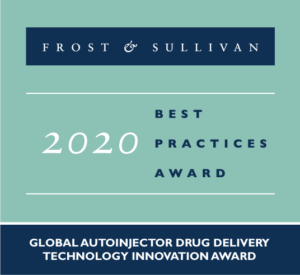
In December 2020, BD Intevia™ 2.25 mL disposable autoinjector was recognised with a Good Design Award, which is the world’s most prestigious, well-recognised and oldest design awards programme, organised annually by The Chicago Athenaeum Museum of Architecture and Design in co-operation with the European Centre for Architecture, Art, Design and Urban Studies and Metropolitan Arts Press, Ltd. The Good Design Award covers new consumer products, graphics and packaging designed and manufactured in Europe, Asia, Africa and North and South America.
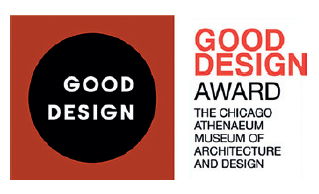
SUMMARY
The growth of biologics has been driven in part by their high efficacy in treating leading chronic diseases. For many compelling reasons, it is desirable to make these innovative drug formulations available to patients for safe and convenient self-injection at home. To help achieve this, the BD Intevia™ 2.25 mL disposable autoinjector extends the design space available to pharmaceutical companies to include high-viscosity, high-volume formulations in an end-to-end integrated combination device.
BD recognises the growing challenge that the integration of combination products poses to pharmaceutical partners as injection devices increase in sophistication and capabilities. With the BD Intevia™ disposable autoinjector platform, BD aims to help customers achieve a higher level of patient care and comfort, greater control of development and manufacturing risk, and lower treatment costs as the industry positions itself to usher in new and demanding biologic therapies.
*High viscosity: Viscosities >20 cP; High volume: Volume ≥2 mL
**BD Intevia™ 2.25 mL is under development; some statements are projections and are subject to a variety of risks and uncertainties.
REFERENCES
- Li Z, Easton R, “Practical Considerations in Clinical Strategy to Support the Development of Injectable Drug-Device Combination Products for Biologics”, MAbs, 2018, Vol 10(1), pp 18–33.
- “Validation Study of BD Intevia™ 1 mL Two-Step Disposable Autoinjector”. Internal Study, 2019, Becton Dickinson and Company.
- “Chronic Disease Policy”. European Chronic Disease Alliance website.
- Bart J, et al, “A Portfolio of Biologic Self-Injection Devices in Rheumatology: How Patient Involvement in Device Design Can Improve Treatment Experience” Drug Deliv, 2019, Vol 26(1), pp 384–392.
- Smietana, K, Siatkowski, R and Møller, M, “Trends in Clinical Success Rates”. Nat Rev Drug Discov, 2016, Vol 15, pp 379–380.
- Biologics Market by Product (Monoclonal Antibodies, Vaccines, Recombinant Hormones/Proteins), By Application (Cancer, Infectious Diseases, Autoimmune diseases), By End Use (Hospitals, Clinics, Diagnostic Centres), and Region, Forecasts to 2027”. Research Report, Reports and Data, July 2020.
- Lu, RM, et al, “Development of Therapeutic Antibodies for the Treatment of Diseases”. J Biomed Sci, 2020, Vol 27(1), p1.
- Patel, A, Cholkar, K, Mitra, AK, “Recent Developments in Protein and Peptide Parenteral Delivery Approaches”. Ther Deliv, 2014, 5(3), pp337–365.
- Bittner, B, Richter, W, Schmidt, J, “Subcutaneous Administration of Biotherapeutics: An Overview of Current Challenges and Opportunities”. BioDrugs, 2018, Vol 32(5), pp 425–440.
- “Design Input Specification for BD Intevia™ 2,25mL”. Internal Report, 2017, Becton, Dickinson and Company.
- “PHS-20-LVA06 HF Late Formative Study for BD Intevia™ 2.25 mL Two-Step Disposable Autoinjector formative study”. Internal Study, 2020, Becton Dickinson and Company.
- Rathore, N, et al, “Variability in Syringe Components and its Impact on Functionality of Delivery Systems”. PDA J Pharm Sci Technol, 2011, Vol 65(5), pp 468–480.
- “System Integration Challenges in Combination Products for Injectable Drugs”. Internal Study, 2019, Becton, Dickinson and Company.
- “Injection Time and Ejection Force Calculation”. Internal Study, 2020, Becton, Dickinson and Company.
- “BD Neopak™ XtraFlow™ Needle Resistance Simulation”. Internal Study, 2020, Becton, Dickinson and Company.
- Pager, A, et al, “User Experience for Manual Injection of 2 mL Viscous Solutions is Enhanced by a New Prefillable Syringe with a Stacked 8 mm Ultra-Thin Wall Needle”. Expert Opin Drug Deliv, 2020, Vol 17(10), pp 1485–1498.
- “Global syringes and needle market report 2020 by key players, types, end users, countries, market size, forecast to 2026.” Research Report, NxtGen Reports, September 29, 2020.

